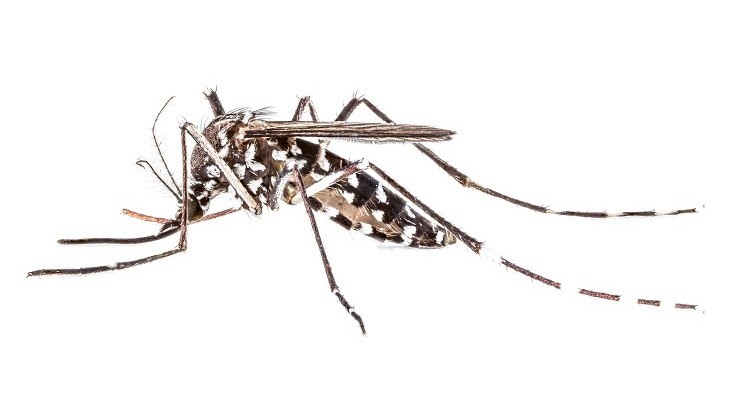
The current surge in COVID-19 cases is renewing public anxiety about the virus, but experts say they want to put people’s minds at ease about one common concern: Mosquitos do not transmit COVID-19.
Since mosquitos are capable of transmitting other viruses, such as West Nile virus, Zika, dengue fever, yellow fever, and others, many concerned San Gabriel Valley residents have been posing the question, according to San Gabriel Valley Mosquito & Vector Control District spokesman Levy Sun.
Fortunately, all available research shows the annoying insects cannot transmit the virus between people they bite, he said.
“With the current surge in COVID-19 cases, also getting a renewed interest from the public regarding whether or not mosquitoes can transmit COVID-19. And so far, the evidence has been pointing to ‘no,’” Sun said.
“The distinction we can make here is that even though the mosquito may carry it, there may be tests that may come out saying that mosquitos may carry a certain virus, it doesn’t mean that they are capable of spreading it,” he said. The virus can enter the mosquito body, but it can not be transmitted to people.”
Sun said he could understand why people would be concerned.
“That would definitely be a gamechanger if mosquitoes can spread it, but we’re very thankful that through some kind of nature’s gamble, we’ve been able to avoid that fact,” he said.

The recent introduction of the Zika virus into Southern California was an example of how viruses can hold surprises for doctors and scientists.
“Zika was the first prominent mosquito-borne disease that was spreading not only through the bite of a mosquito, but also can be sexually transmitted between people. So you never know what nature can throw at you,” Sun said.
Vector control officials pointed to a study published in July in the journal Scientific Reports by researchers from Kansas State University which found COVID-19 cannot thrive inside the bodies of mosquitos.
“Three widely distributed species of mosquito; Aedes aegypti, Ae. albopictus and Culex quinquefasciatus, representing the two most significant genera of arbovirus vectors that infect people, were tested,” according to the study. “We demonstrate that even under extreme conditions, SARS-CoV-2 virus is unable to replicate in these mosquitoes and therefore cannot be transmitted to people even in the unlikely event that a mosquito fed upon a viremic host.”
While COVID-19 is not among the dangers posed by mosquitoes, the illnesses they do transmit remain a serious concern, Sun said.
“The risk is still present, but it is lower now that the weather is cooling off,” he said.
As temperatures dip, mosquitos tend to head underground into storm drains, Sun explained. “Our infrastructure below ground is constantly warm year-round, which provides the perfect resting and hiding site for mosquitoes, even during the winter.
“Our fear right now is people become complacent around their homes and let containers fill up with water,” he said. “And if there’s ever a warm day during the winter, which there may be, these mosquitoes will come right out of our storm drains and start laying their eggs in people’s backyards. And we’ll have a bloom of mosquitoes in winter.”
Officials reminded the public that mosquitoes can use bodies of standing water as small as a bottle cap in which to breed.
While vector control officials have teams that monitor storm drains and treat for mosquitoes, if necessary, “we still will rely a lot on residents being our first line of defense in their own home to stop the mosquitoes from infesting their yards,” Sun said.














